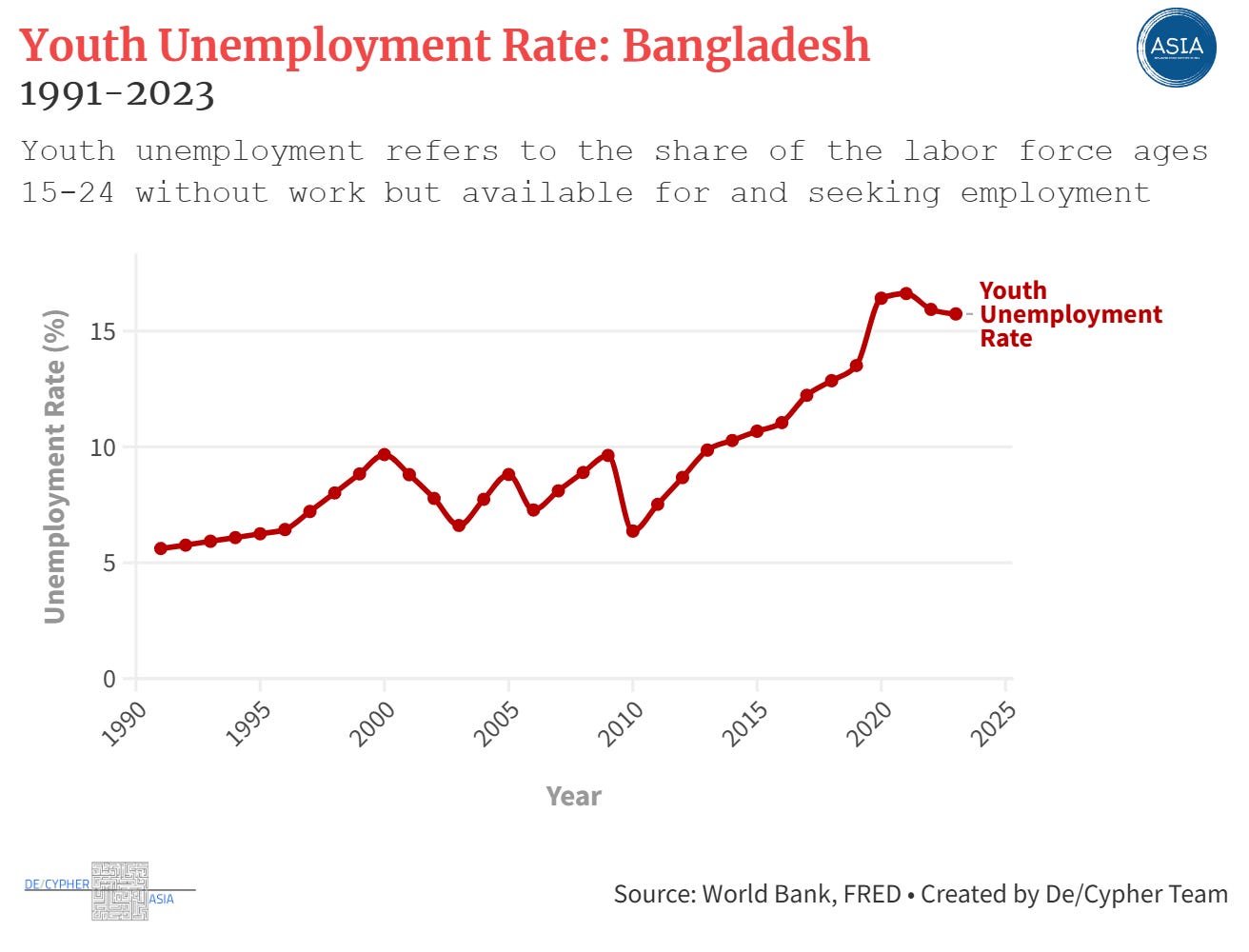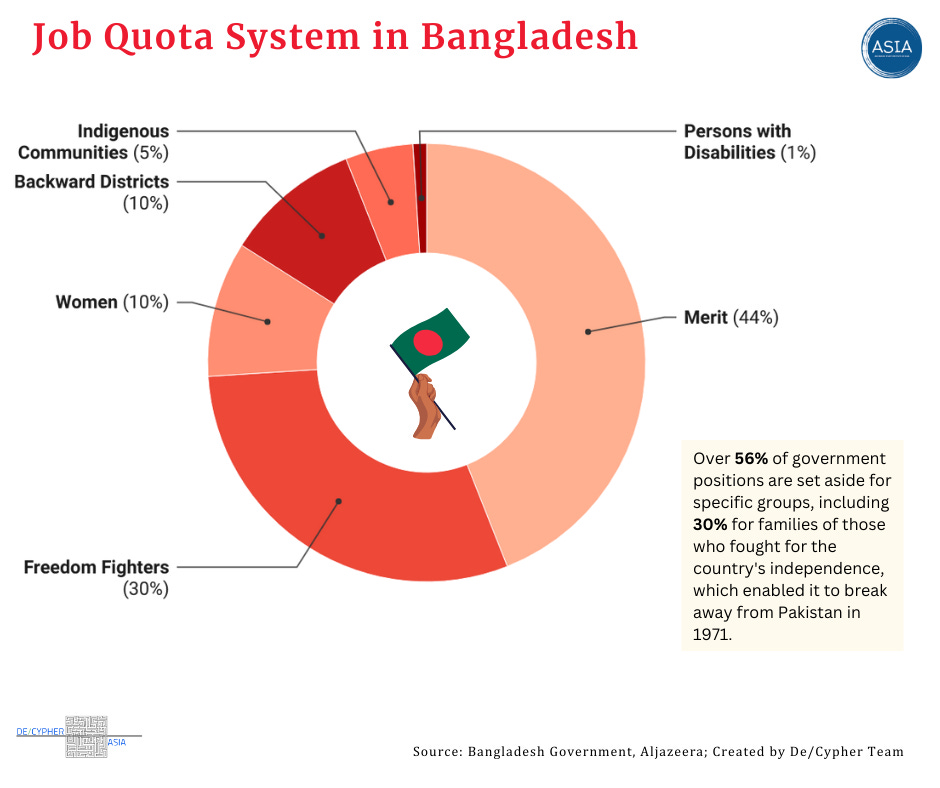Protests, Power, and Pressure: PM Hasina's Dilemma and Can Pakistan Implement New IMF Deal?
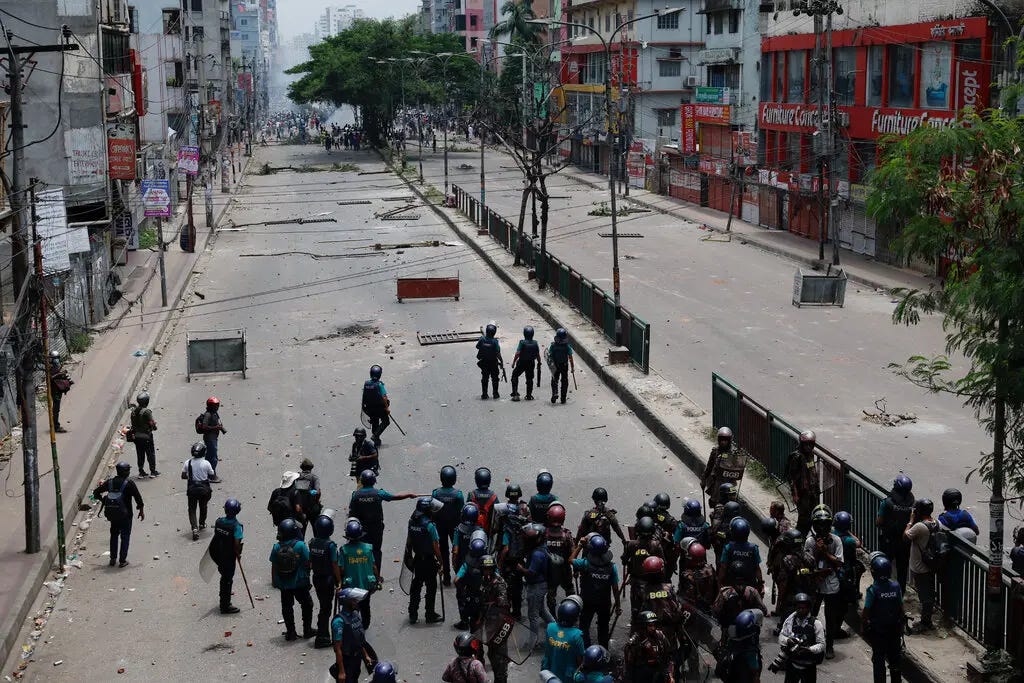
De/Cypher Data Dive 📈
About 67 percent of Bangladesh’s 170 million people are aged 15-64 and more than a quarter are aged 15 and 29, according to the International Labour Organization.
Many Bangladeshi students are demanding an end to the government’s quota system, which reserves more than half of civil service posts for certain groups.
Asia View
Elections, Protests, and Power: Bangladesh Under Sheikh Hasina's Rule
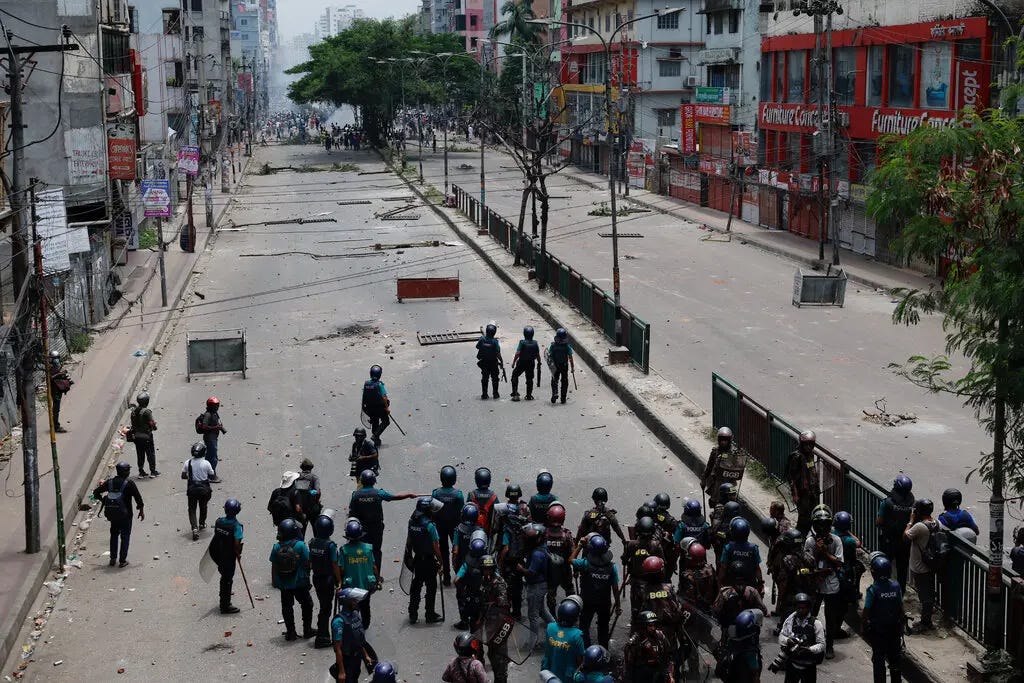
Written By Aurko Chakrabarti, Applied Geopolitical Researcher, with Insights from FT, Reuters, The Guardian, The Diplomat, and TOI
Background
On 6th January, Sheikh Hasina secured her fifth term as the Prime Minister of Bangladesh, much to the chagrin of spectators, particularly in the West, who heaped allegations of election rigging on the ruling Awami League party. The extension of her premiership was seen as the Awami League expanding their control over the country’s institutions and reducing democratic spaces. The exclusion of the primary opposition, the BNP, who refused to contest the elections, as they believed it would not be a free and fair process, fuelled autocrat narratives. The voter turnout for the election was officially at 40% but on-ground reports showed a lack of enthusiasm with the public resigned to the fact that their vote no longer held the same value.
In the run-up to the election, there were large amounts of political-violence consuming the streets of the country led by the BNP. These majorly died down after the election but an underlying feeling of economic discontent which had grown through the country in recent years, exasperated by the Covid-19 Pandemic, persisted. High inflation, a depletion of foreign reserves and blackouts, which were becoming a feature of everyday life were leaving the youth of the country, feeling disenfranchised, by a lack of opportunity. Daily wage protests by RMG workers which had begun in 2023 and continued into Hasina's fifth term, with workers feeling disillusioned that wealth was not being fairly distributed to them despite Bangladesh's role as a global hub for RMG manufacturing.
Protests are not new to Bangladesh but every once in a while, a desire for accountability in the country’s capital, Dhaka, can resonate with citizens across cities and quickly turn into a nationwide furore.
Anti-Quota Reform Protests
Students peacefully protested against the government on July 1 after the High Court re-instated the job quota that reserves one-third of civil service posts for the descents of freedom fighters who helped Bangladesh gain independence in the 1971 liberation movement. The ruling was made after disposing of a 2021 writ petition filed by the child of a freedom fighter and six others challenging the legality of abolishing quotas for freedom fighters. This system was previously abolished on October 4, 2018, following extensive nationwide protests. This makes the government's attempt to reintroduce it seem strange. Was this a display of arrogance? Or was it a sign of desperation?
The Awami League was at the forefront of the Liberation War, and the guerilla resistance force, Mukti Bahini, that fought for Bangladesh's independence primarily consisted of its supporters.
The Awami League’s attempt at trying to bring back this quota system could be seen as an attempt to shore up their political defences. 30% of civil service jobs going directly to the descendants of freedom fighters, assuming they are supporters of the current administration, would allow for a greater exertion of control and ideology by Sheikh Hasina.
PM Hasina's controversial remarks
The protests in Bangladesh turned violent after Prime minister Sheikh Hasina tagged the protestors as 'Razakars', a label used for individuals who took Pakistan’s side in the 1971 war.
"If not the grandchildren of the freedom fighters, then who will get quota benefits? The grandchildren of the 'Razakars'? This is my question. Sheikh Hasina, July 14
For context, 'Razakar' is a highly derogatory term in Bangladesh that essentially means traitor. Protestors from Dhaka University took to the street with their own slogan which roughly translates to “Who am I? Who are You? Razakar, Razakar. Who said that? Who said that? Autocrat. Autocrat.”
The last part of this slogan may seem unfamiliar to some who have been watching events unfold in Bangladesh, primarily because some elements of the media and governments only used to the first half of the slogan, “Who am I? Who are You? Razakar, Razakar.” to create a sense of othering. This distortion resulted in a lack of context, escalating the country's tensions.
Fights broke out all across the country between pro-government forces and protesters leaving thousands injured and 150 dead, though the government has refused to provide official data on the death toll. The student wing of the Awami League, Bangladesh Chhatra League (BCL) has faced accusations of sustained violence and brutality according to multiple reports.
The government also imposed a communications blackout, with the internet shut down and phone lines blocked. More than 70 leaders of the political opposition and several student leaders and activists have also been jailed, accused of creating unrest. Protests even reached the streets of London, fuelled by the large Bangladeshi diaspora residing in the UK.
Supreme Court Intervention
On July 21, Bangladesh’s top court decided to scale back the quotas on government jobs in an effort to stop the violence. The supreme court ruling, stated that only 5% of jobs would now be reserved for descendants of freedom fighters compared to the proposed 30% and another 2% for those from ethnic minorities or with disabilities, with the rest open to candidates based on merit.
Despite this, the country remains under an indefinite curfew, with people not allowed to leave their homes and gather in any capacity. An eeriness echoes through the empty streets of Dhaka, which almost resembles a war-torn city.
The matter is unlikely to end here though. Student organisers have already said the protests will not end but now in turn shift to demanding accountability and justice for the 100s of lives lost. While, Sheikh Hasina is no stranger to this kind of public outcry, this time feels different. Sheikh Hasina has been able to dust off criticism from foreign powers and has controlled dissent within Bangladesh from the opposition, but such strong backlash from the country’s youth may present a new challenge.
What will be the aftermath?
The liberation war of 1971 has always been central to Sheikh Hasina's message about the importance of maintaining sovereignty and why the Awami League is the only political party with the best interests of the country at heart. Recent events indicate that it can now be weaponised against her. There has always been a deep political divide in Bangladesh and a sense of mistrust that exists between the Awami League and the BNP. The BNP has used China's financing of development projects in Bangladesh, as well as Sheikh Hasina's close personal ties to neighbouring India, to fuel the narrative that the ruling government is selling the country out.
The divisive nature of the rhetoric put forth by Sheikh Hasina is alarming to many in Bangladesh and around the world. The stability provided by a continued government with Sheikh Hasina at the helm was one of the major reasons why foreign powers like China were keen on seeing her secure her 5th term as Prime Minister. But if the government cannot maintain peace and control, it may draw China’s large spending power closer to the BNP. China is more concerned with protecting its investments in Bangladesh and deep pockets can fit, regardless of the pants they are sewn into.
When anti-quota reform protests began, the government distanced itself from the issue, claiming that the decision was made by the High Court, over which they had no control. The separation between the government and the institutions in the country seemed to fade at the moment when Sheikh Hasina made the explosive remarks that sparked the violence.
Similarly, in the case of Nobel Prize laureate and microfinance pioneer Muhammad Yunus, Prime Minister Hasina and her party have claimed that the case against Yunus is completely unrelated to them. But is there a possibility that the lines have blurred between the State and its institutions? Yunus had always been a vocal critic of internal politics in Bangladesh and once had the idea of starting his own political party, but it never materialised. Yunus always believed it was due to interference from the Awami League.
Sheikh Hasina has always spoken about how the 'father of the nation', Sheikh Mujibur Rahman, fought against autocracy, oppression, and subjugation, resulting in the establishment of an independent Bangladesh. Over half a century later, is she following in his footsteps or will they be erased?
Af-Pak De/Cypher
22 July, 2024
Top Stories
Punjab governor ‘opposes’ ban on PTI
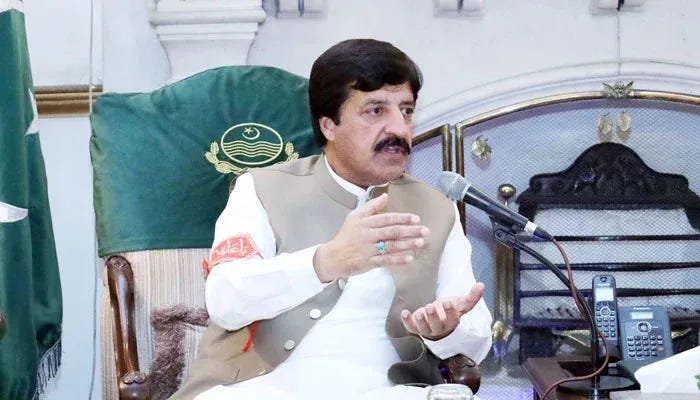
Amjad Mahmood reports for Dawn that Punjab Governor Sardar Saleem Haider Khan has said that personally he considers that proscribing any political party is inappropriate, while Defence Minister Khawaja Asif has chided those elements who find opportunity in uncertain political conditions in the country. Talking to the media on Sunday, Governor Khan said that the PML-N took a unilateral decision of proscribing the PTI and he or his party, the PPP, was not taken on board by the ruling PML-N before announcing the decision. However, the governor said the issue of the ban on PTI would be taken up in the PPP’s Central Executive Committee (CEC) meeting and a decision on whether to support the likely ban on PTI or oppose it in the parliament would be taken after thorough discussions.
Implementing new IMF deal a challenge as political pressure mounts
Shahid Iqbal reports for Dawn that the current fiscal year’s tax-laden budget and the Supreme Court’s ruling on reserved seats have shifted the focus of politics on the economy, casting doubts over the country’s ability to meet the new IMF conditions for a $7 billion loan. Analysts indicate that the government is seeking China’s help to restructure its substantial $28bn debt. However, sources suggest China is unlikely to restructure these loans, fearing that other nations, like Sri Lanka, may also seek debt re-profiling from Beijing.
Cotton output ‘halved’ by climate change, inefficiency
Amjad Mahmood reports for Dawn, that the overall cotton production in Pakistan during the current season has dropped by almost half compared to the same period last year, according to the Pakistan Cotton Ginners Association. Experts have said the dip in bale availability was due to erratic weather patterns and the government’s failure to ensure that farmers got good prices for their produce. In its first report of the season about the new crop released on Saturday, the association said around 442,000 bales of phutti or raw cotton were brought to ginning factories up till July 15. The number was 48.48 per cent less than 858,007 bales available to ginning units during the same period last year, said the report which included data till July 15.
Turkmenistan foreign minister arrives in Islamabad today amid Pakistan trade push
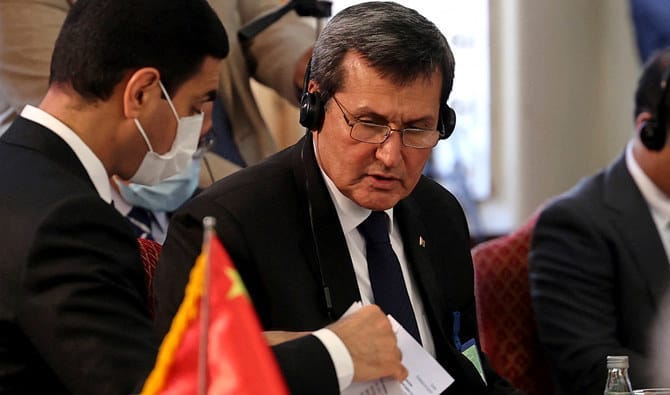
Arab News reports that the foreign minister of Turkmenistan Rasit Meredow arrived in Pakistan on a three-day visit today, Monday, Pakistani state media reported, amid Islamabad’s efforts to boost trade with Central Asian states. Pakistan hopes to leverage its strategic geopolitical position and enhance its role as a pivotal trade and transit hub connecting the landlocked Central Asian republics with the rest of the world. In recent months, there has been a flurry of visits, investment talks and economic activity between Pakistan and Central Asian states, including meetings with leaders from Uzbekistan and Azerbaijan.
Pakistan says it arrested an al-Qaida leader who was a close aide to Osama bin Laden
Ground News reports that Pakistan counterterrorism police arrested an al-Qaida leader, Amin ul Haq, who was a close aide to Osama bin Laden, according to officials. Deputy Inspector General Usman Gondal stated that the Counter-Terrorism Department arrested Haq after a yearslong pursuit, thwarting possible attacks in Punjab. Haq, an Afghan, is on a U.N. sanctions list and was accused of financing al-Qaida and supplying arms to insurgents.
FO summons German ambassador over vandalism attack on diplomatic mission in Frankfurt
Kamran Yousaf reports for the Express Tribune that the Foreign Office on Sunday summoned the German ambassador in Islamabad to lodge a strong protest over the vandalism of Pakistan’s diplomatic mission in Frankfurt by Afghans. The incident happened on Saturday when Afghan nationals protested outside the Pakistani Consulate in Frankfurt. Some of the protesters, as visible in social media videos, scaled the walls of the mission, removed the Pakistani flag and attempted to burn it. According to reports, some eight to 10 Afghan nationals were involved in storming the Pakistani consulate and fled after taking down the Pakistani flag. The German police have not made any arrests so far. Sources said that the German ambassador was summoned to the Foreign Office over the incident. An official handout issued by the Foreign Office confirmed that the protest had been lodged with the German Embassy but didn’t say if its envoy was called to the ministry.
PM orders swift implementation of agreements with China
Dawn reports that Prime Minister Shehbaz Sharif on Saturday directed the authorities to expedite the process of implementing the agreements and memoranda of understanding (MoUs) made with the Chinese government and Chinese companies, saying that any further delay would not be tolerated. The prime minister pointed out that the transfer of the Chinese industry to Pakistan would help improve the country’s overall economy, increase Pakistan’s exports, and create new employment opportunities. During the meeting, the prime minister was briefed on the progress of different projects launched with Chinese cooperation.
Afghanistan Update
At least 40 die after heavy rains pound eastern Afghanistan, destroying houses and cutting power
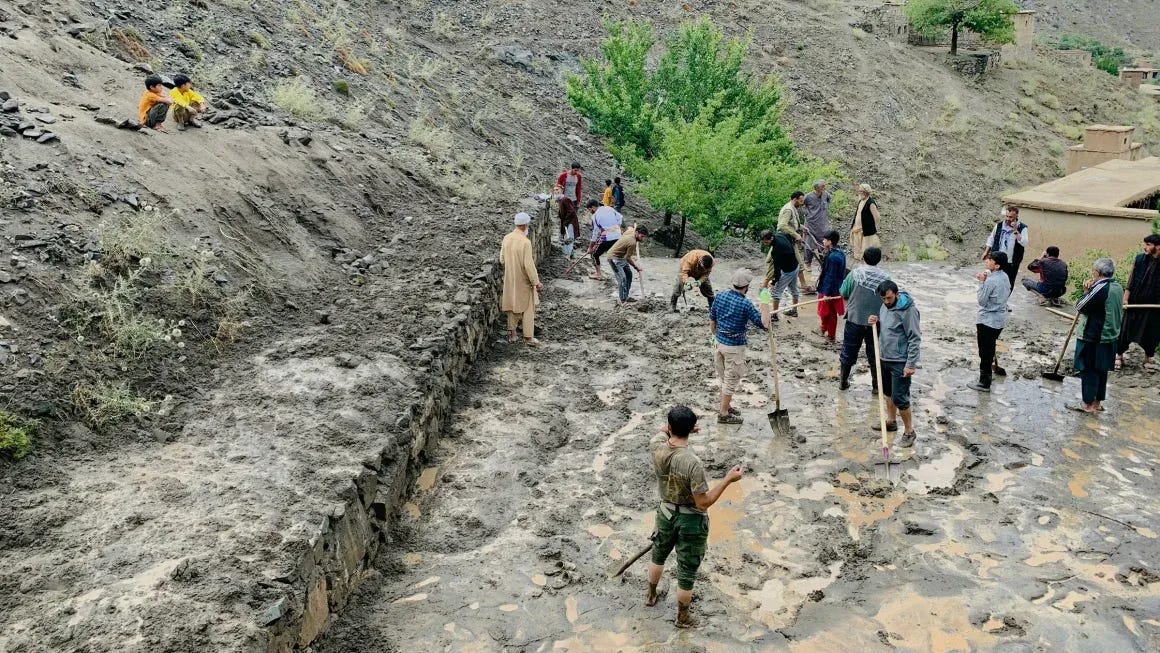
Rahim Faiez reports for the Associate Press that heavy rains in eastern Afghanistan have killed at least 40 people and injured nearly 350 others, Taliban officials said Tuesday. Among the dead in Monday’s storm were five members of the same family when the roof of their house collapsed in Surkh Rod district, according to provincial spokesperson Sediqullah Quraishi. Four other family members were injured. Sharafat Zaman Amar, a spokesperson for the Public Health Ministry, said the 347 injured people had been brought for treatment to the regional hospital in Nangarhar from Jalalabad, the capital of Nangarhar province, and nearby districts. About 400 houses and 60 electricity poles were destroyed across Nangarhar, Quraishi said. Power was cut in many areas, and there were limited communications in Jalalabad city, he said. The damage was still being assessed.
Pakistan summons Afghanistan diplomat over deadly military base terror attack
Ayaz Gul reports for Voice of America that Pakistan lodged an official complaint Wednesday with the Taliban government in Afghanistan over a recent extremist attack against a military compound in the northwest, which resulted in the deaths of eight soldiers and injuries to many others. The Foreign Ministry said that it summoned the deputy chief of the Afghan Embassy in Islamabad to deliver a "strong demarche" or official diplomatic note regarding Monday’s pre-dawn raid in the garrison city of Bannu. The statement urged Taliban authorities to “fully investigate and take immediate, robust and effective action against the perpetrators” of the attack. The Pakistani military has said that 10 heavily armed men carried out the Bannu assault and were all killed in the ensuing hours-long gun battles with security forces.
US aid vetting failures may have benefited militants in Afghanistan, watchdog finds
Jonathan Landay reports for Reuters that two State Department bureaus could not prove compliance with internal policies for vetting aid groups in Taliban-ruled Afghanistan that received $293 million in funds, raising a risk that extremists may have profited, a U.S. watchdog said on Wednesday. In order to stop aid from being transferred to the Taliban or other sanctioned parties, it is imperative that the State understands who is truly benefiting from it, according to the Special Inspector General for Afghanistan Reconstruction (SIGAR) report. According to the report, the Taliban has attempted to secure funds from the United States through a variety of methods, including the creation of humanitarian organizations. This emphasizes the necessity for the department to "completely and consistently evaluate the risks posed by its implementing partners."
Bangladesh De/Cypher
22 July, 2024
Top Stories
Growing Seafoods Demand Seeks Investment in Marine Resources: PM
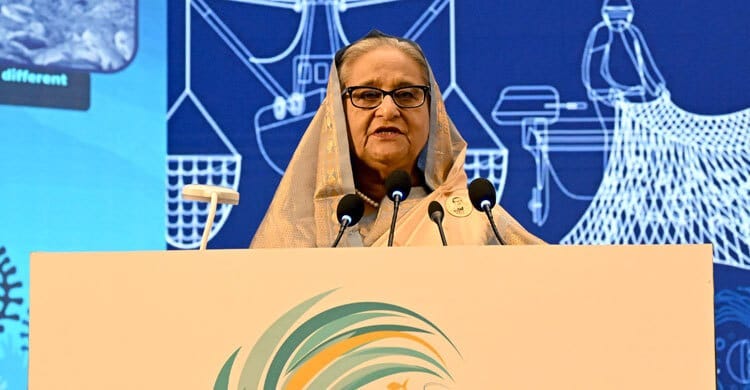
The Daily Messenger reports that Prime Minister Sheikh Hasina has called on local and foreign entrepreneurs to invest in Bangladesh's marine resources. At the inaugural ceremony of the Bangladesh International Aquaculture and Seafood Show-2024, Hasina emphasized the country's potential to enhance its blue economy amid rising global seafood demand. She highlighted the importance of increasing seawater fish production and maintaining international standards in fish quality and export. The PM also encouraged the younger generation to engage in fish production and preservation.
China to Continue Zero-Tariff Facilities Post-LDC: Envoy
The Business Standard reports that Chinese Ambassador Yao Wen announced China will maintain zero-tariff treatment on 98% of taxable items for Bangladesh beyond 2026, post-LDC graduation. During Prime Minister Sheikh Hasina's successful visit to China, the feasibility study for a free trade agreement (FTA) was completed, with negotiations set to begin this year. China committed approximately $2 billion in concessional and commercial loans to Bangladesh. Discussions included enhancing bilateral relations, the Global Development Initiative (GDI), and the Belt and Road Initiative. China also supports safe Rohingya repatriation efforts.
Thai Team to Tap Investment Potential in Sabrang Tourism Park
The Business Standard reports that a high-level Thai delegation, led by Nalinee Taveesin, adviser to the Thai prime minister, will visit Sabrang Tourism Park in Cox's Bazar to explore investment opportunities. The park, Bangladesh’s first exclusive tourism park, spans 967 acres and is part of Beza's plan to develop three special tourism parks aimed at generating 50,000 jobs in the next decade. Prime Minister Sheikh Hasina emphasized the importance of trade and cooperation between Bangladesh and Thailand, highlighting potential investments in energy, logistics, food processing, seafood, and tourism. So far, $458.18 million in investment offers have been received for the park.
Saber Seeks Japan’s Support
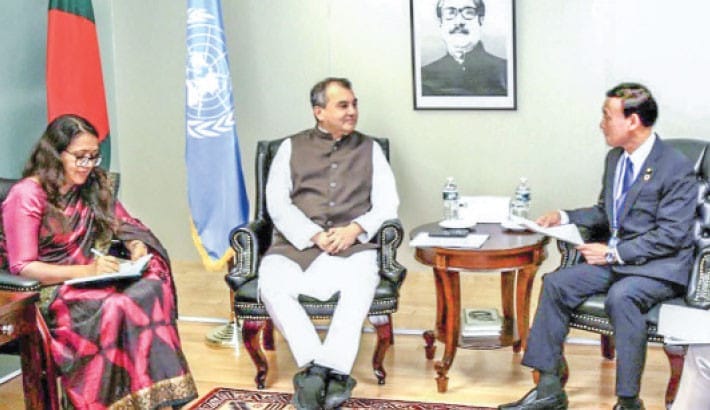
The Daily Sun reports that Environment, Forest and Climate Change Minister Saber Hossain Chowdhury sought Japan’s continued support for Bangladesh’s green transformation through investment and technology transfer. During a bilateral meeting with Japan’s State Minister of Environment Motome Takisawa at the Bangladesh Permanent Mission to the UN in New York, Chowdhury emphasized Bangladesh's commitment to sustainability. He urged Japan to invest in the Mujib Climate Prosperity Plan (MCPP) and enhance cooperation through the Joint Crediting Mechanism (JCM).
Bangladesh, Belgium Seal Institutional Co-op on Cancer Research
TBP reports that the National Institute of Cancer Research & Hospital (NICRH) in Bangladesh and the Bordet Cancer Institute at Hopital Universitaire de Bruxelles (HUB) in Belgium have signed an MoU to collaborate on cancer care and research. The agreement aims to enhance joint research activities and expertise in cancer treatment through capacity building and infrastructure development. Ambassador Mahbub Hassan Saleh, representing NICRH, emphasized the MoU's role in advancing Bangladesh's cancer treatment and research capabilities, aligning with Prime Minister Sheikh Hasina's vision of a 'Smart Bangladesh' by 2041.
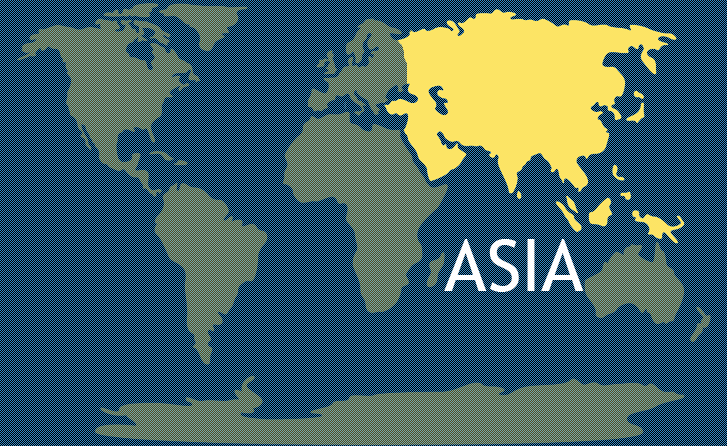
Headlines Quick Recap
Asian foreign reserves decline in 2024 first half
Patturaja Murugaboopathy and Gaurav Dogra write for Reuters that Asia's foreign reserves have dropped this year as central banks have intervened to support their currencies, with Japan, Indonesia and South Korea leading the declines. Foreign reserves across 12 countries, from Japan to India, fell about $50 billion to $7.5 trillion by the end of June. They had risen 2.2% in the same period last year.
U.S. approaches Indonesia to join Mineral Security Partnership
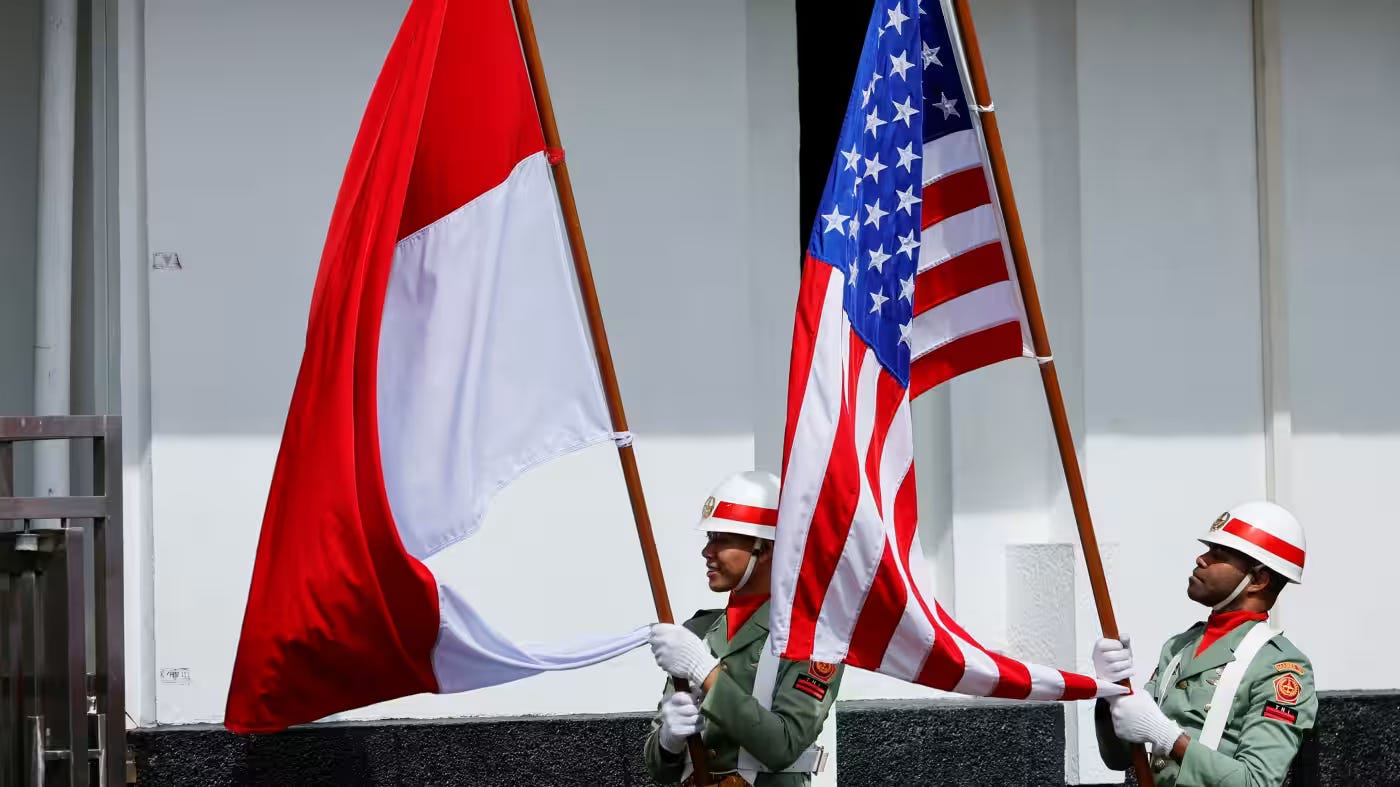
Nikkei Asia reports that the U.S. has approached Indonesia about joining a multinational partnership to boost the Southeast Asian nation's environmental standards as the two countries discuss a critical minerals deal, a senior U.S. official said on Monday. U.S. Under Secretary of State for Economic Growth, Energy, and the Environment Jose Fernandez spoke to the Indonesian government about the Mineral Security Partnership, a collaboration of 14 countries and the European Union, during his visit to Jakarta this week. The MSP, whose objective is to accelerate development of sustainable critical minerals supply chains and facilitate financial and diplomatic support, would be an opportunity to improve environmental standards and governance in Indonesia's mineral sector, he told a press conference in Jakarta. Indonesia, which has rich reserves of minerals such as nickel, copper and bauxite, is keen to promote itself as a production hub for batteries and electric vehicles.
Thailand expands visa-free entry to 93 countries
Kelly Ng & Thanyarat Doksone report for the BBC that Thailand has expanded its visa-free entry scheme to 93 countries and territories as it seeks to revitalize its tourism industry. Visitors can stay in the South-East Asian nation for up to 60 days under the new scheme that took effect on Monday; previously, passport holders from 57 countries could enter without a visa. Tourism is a key pillar of the Thai economy, but it has not fully recovered from the pandemic. Thailand recorded 17.5 million foreign tourists arrivals in the first six months of 2024, up 35% from the same period last year, according to official data. However, the numbers pale in comparison to pre-pandemic levels. Most of the visitors were from China, Malaysia and India. Tourism revenue during the same period came in at 858 billion baht ($23.6bn; £18.3bn), less than a quarter of the government's target.
TikTok e-commerce grows fourfold in ASEAN, narrows gap with Shopee
Tsubasa Suruga writes for Nikkei Asia that TikTok, the viral short video app owned by China's ByteDance, is becoming one of the largest e-commerce platforms in Southeast Asia—a market long dominated by local players like Shopee and Alibaba's Lazada, an annual study released Tuesday showed. The app's e-commerce platform TikTok Shop increased its gross merchandise volume (GMV) nearly fourfold from $4.4 billion in 2022 to $16.3 billion last year, the fastest growth rate among regional rivals, Singapore-based consultancy Momentum Works reports. Combined with Indonesia's Tokopedia, in which TikTok took a majority stake last year, TikTok's e-commerce platform overtook Lazada to become the second largest player in the ASEAN region, with an estimated 28.4% market share as of last year, the report said. The region's total e-commerce GMV hit $114.6 billion in 2023, up 15% from a year earlier, the report said. Shopee retained its top position with a 48% share, followed by Lazada at 16.4%, with TikTok and Tokopedia each taking 14.2%.
---



